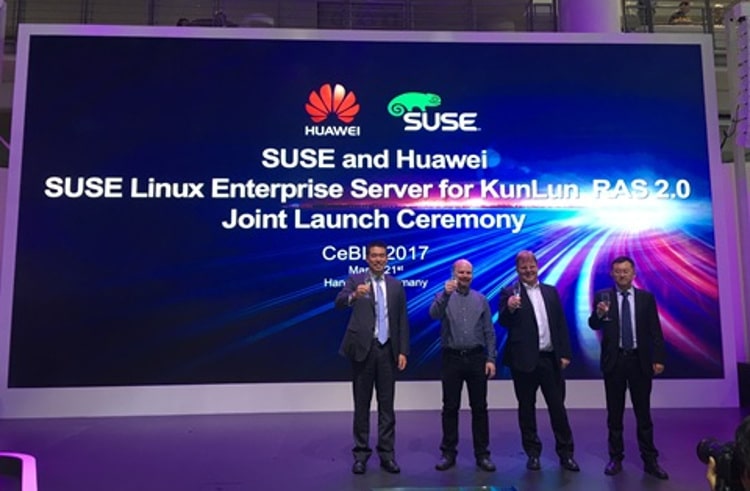
Huawei has announced its partnership with SUSE to bring SUSE Linux Enterprise Server as the preferred standard operating system for its KunLun RAS 2.0. The open source platform is touted to bring reliability, availability and serviceability features for the server, and the combination brings an “always online” offering for enterprises.
At CeBIT 2016 in last March, Huawei and SUSE jointly launched KunLun as the world’s first 32-socket mission critical server. That tie-up influenced both the companies to move a step ahead and ultimately made SUSE Linux Enterprise Server as the preferred standard operating system.
“Now we bring our partnership to a new level by releasing the industry’s first standard Linux OS that supports KunLun RAS 2.0. The OS will help KunLun deliver reliability that is parallel to, and even surpasses, that of traditional high-end UNIX servers. These benefits will translate into better return on investment for our customers,” said Wang Zhen, vice president for IT Server Product Line, Huawei.
The operating system for KunLun is based on SUSE Linux Enterprise Server 12 Service Pack 2 and supports RAS 2.0 features that allows customers to add or remove CPU and memory resources without shutting down the system.
“SUSE leads the industry by releasing the preferred standard OS that supports KunLun RAS 2.0 features, including CPU and memory hot swap,” said Ralf Flaxa, SUSE president of engineering.
The SUSE team led by Flaxa is additionally developing an in-service kernel upgrade feature. This ongoing development is planned to deliver all the latest updates to the Linux-backed platform.
Leverages x86 ecosystem to serve mission-critical environments
Huawei has designed KunLun to address high reliability, performance and scalability requirements of mission-critical environments by leveraging x86 ecosystem. The server is claimed to overcome the longstanding restrictions of enclosed architectures.










































































[…] Huawei and SUSE have expanded their ongoing partnership for developing a mission-critical server to run SAP applications. The new announcement emerges months after the two companies agreed to make SUSE Enterprise Server compatible with KunLun RAS 2.0. […]